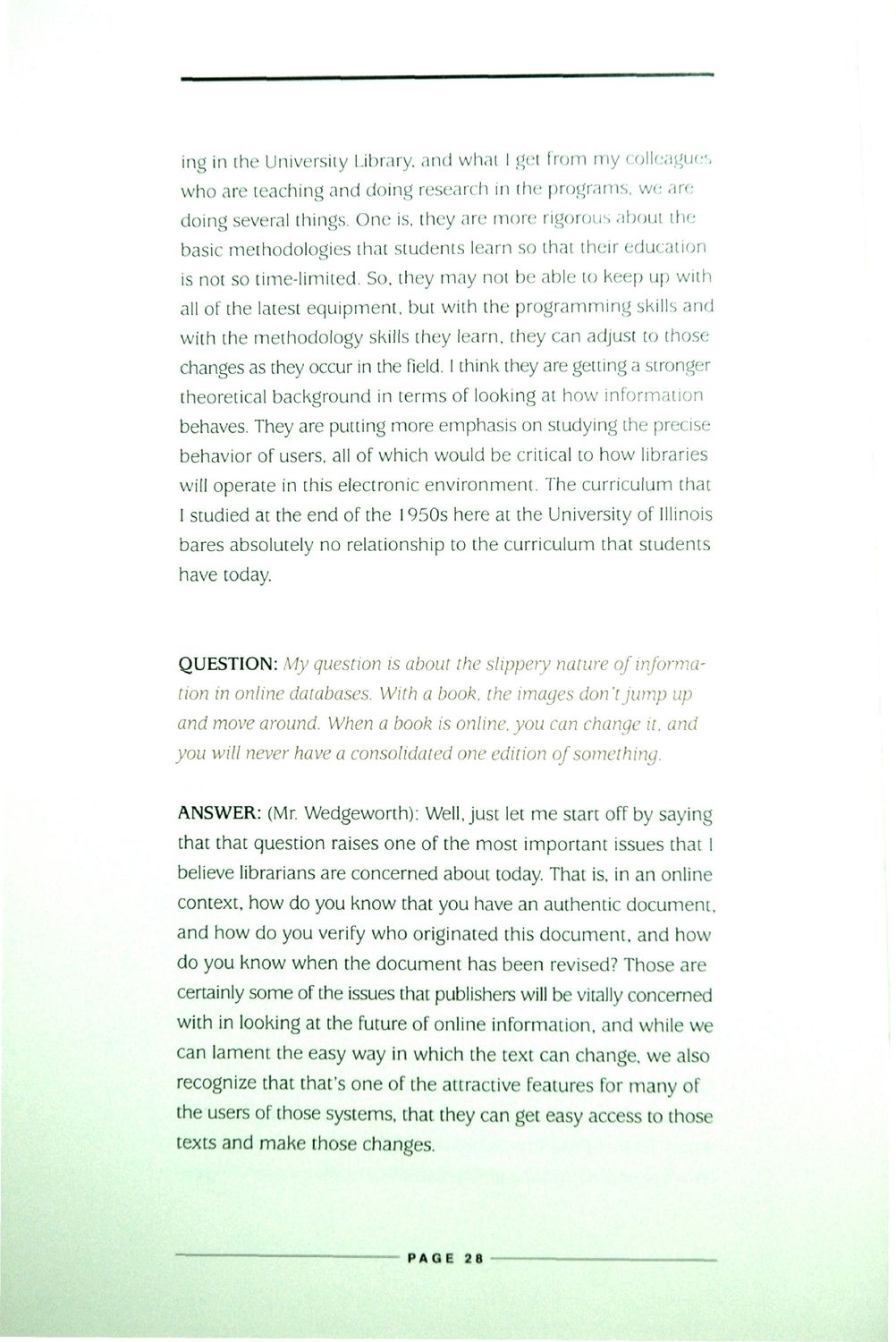| |
| |
Caption: Dedication - Grainger Engineering Library Symposium
This is a reduced-resolution page image for fast online browsing.

EXTRACTED TEXT FROM PAGE:
ing in the University Library, and what I get from my colleagues who are teaching and doing research in the programs, we are doing several things. One is, they are more rigorous about the basic methodologies that students learn so that their education is not so time-limited. So, they may not be able to keep up with all of the latest equipment, but with the programming skills and with the methodology skills they learn, they can adjust to those changes as they occur in the field. I think they are getting a stronger theoretical background in terms of looking at how information behaves. They are putting more emphasis on studying the precise behavior of users, all of which would be critical to how libraries will operate in this electronic environment. The curriculum that I studied at the end of the 1950s here at the University of Illinois bares absolutely no relationship to the curriculum that students have today. QUESTION: My question is about the slippery nature of information in online databases. With a book, the images don'tjump up and move around. When a book is online, you can change it, and you will never have a consolidated one edition of something. ANSWER: (Mr. Wedgeworth): Well, just let me start off by saying that that question raises one of the most important issues that I believe librarians are concerned about today. That is, in an online context, how do you know that you have an authentic document, and how do you verify who originated this document, and how do you know when the document has been revised? Those are certainly some of the issues that publishers will be vitally concerned with in looking at the future of online information, and while we can lament the easy way in which the text can change, we also recognize that that's one of the attractive features for many of the users of those systems, that they can get easy access to those texts and make those changes. PAGE 28
| |